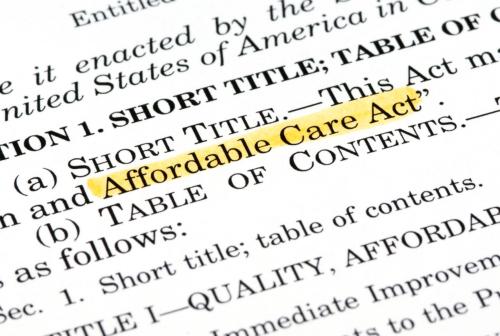As President Obama invites Republican leaders in Congress to bring their best ideas forward for slowing the growth of health care expenditures and expanding the number of insured Americans, Engelberg Center Director Mark McClellan outlines what he believes those ideas should be, alongside other recommendations for bipartisan compromise in The New York Times. Read the full article »
Republicans can’t and won’t accept a simple combination of the Democratic health care bills that passed the House and Senate. But the country needs health care reform, and Republicans must engage in the process.
They should insist on adding reforms that would do more to reduce costs, in order to avoid higher income, payroll or similar taxes. (These taxes are different from the proposed excise tax on high-cost health insurance, which would actually reduce health-care spending.) Further cost-saving reforms could include meaningful changes in medical liability law; better opportunities for people to save money when they take steps to lower their health care costs; and Medicare savings from greater use of competitive bidding.
Some elements of the Democratic legislation could be part of a bipartisan agreement — for instance, help for people with limited means and/or high medical needs to buy insurance in a competitive marketplace. Such a market would let people easily compare a broad range of options and keep the savings if they chose a less costly plan.
Republicans should also build on proposals to enable health care providers to get higher Medicare payments when they deliver better care at less cost. For example, the Democratic bills would let providers share in Medicare savings if they can show that the way they prevent and manage illnesses reduces complications and costs Medicare less. Republicans should further propose that Medicare strengthen its capacity to provide data and measure patient outcomes — to help providers and to evaluate changes in care quickly.
This is desperately needed to help make Medicare sustainable while improving the quality of care. Currently, doctors lose money when they work with nurse practitioners, pharmacists or wellness programs to help patients avoid costly complications — because Medicare doesn’t pay for this, and it results in fewer billings for the visits, tests and procedures Medicare does pay for.
All these steps can add up to a health care system that does much more to support patients and health professionals in improving our health and saving money. That’s a bipartisan opportunity we can’t afford to miss — either because Democrats are unwilling to change or because Republicans insist on starting over.



Commentary
Op-edHow the G.O.P. Can Fix Health Care
February 21, 2010